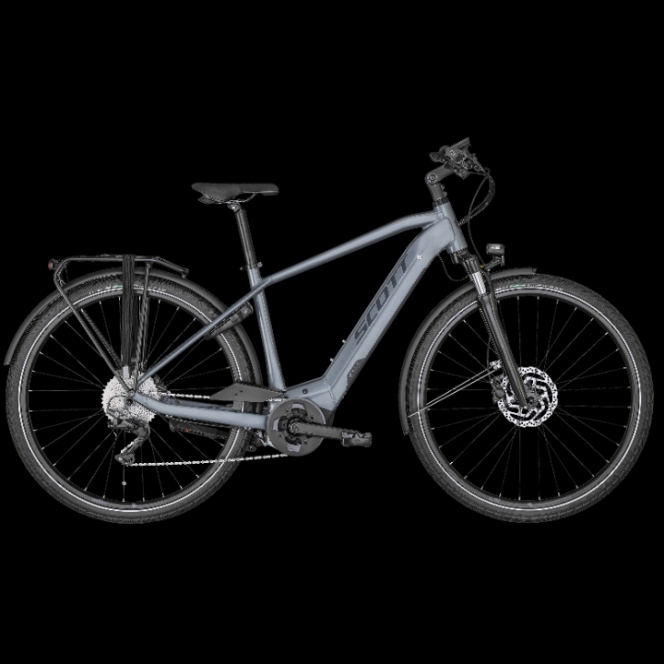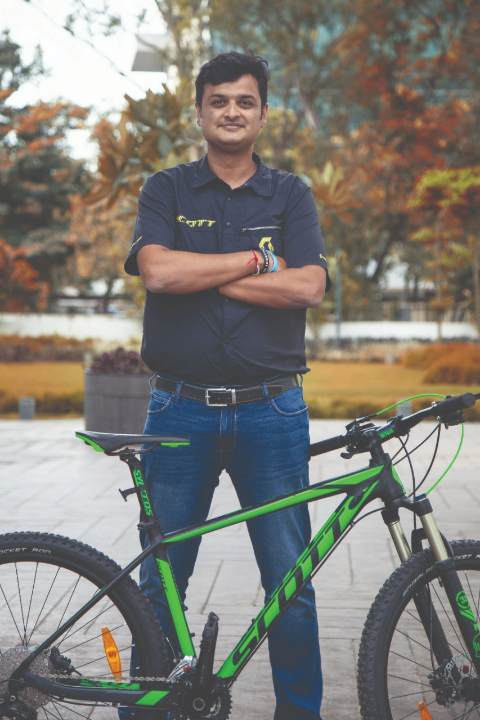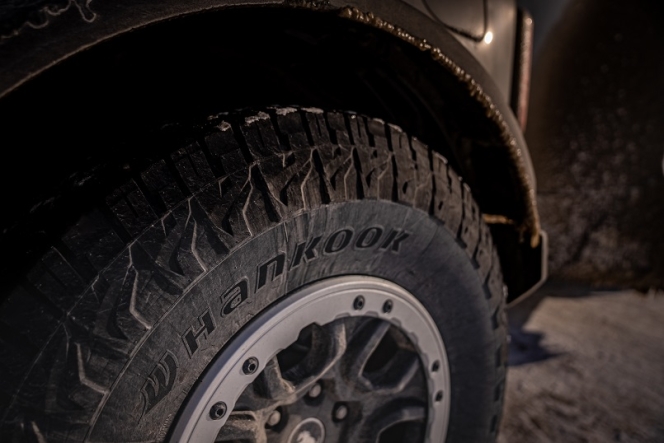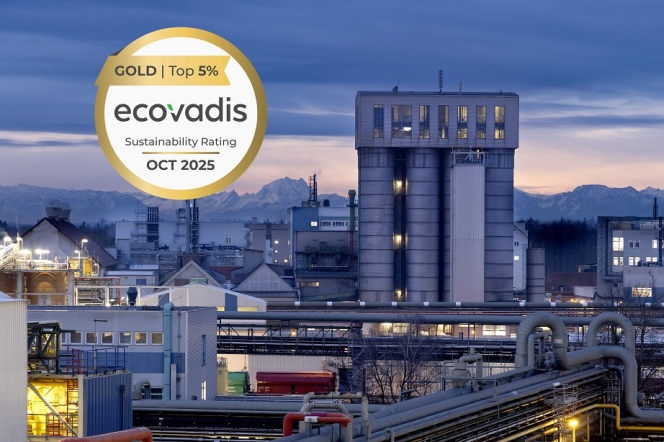Pedalling With Every Need
- By Juili Eklahare and Sharad Matade
- July 14, 2022

The bicycle industry has seen an exponential demand, especially since the Covid-19 pandemic hit. With an increase in commodity prices and new players entering the industry, every manufacturer has to be as efficient as possible to make its bicycle stand out in the market. We talk to Scott Sports India on making its place in the Indian market, the impact of the pandemic and investing in its customers.
The increase in the purchasing power of consumers in developing nations like India, Mexico and Malaysia is anticipated to be the utmost driver for the bicycle market in the years to come. Also, according to a recent study, the global bicycles market is expected to reach USD 78 billion by 2026, especially with so many bicycle players making their way into the market.
One such company is Scott Sports, a Swiss producer of bicycles, winter equipment, motorsports gear and sportswear, which has also made its place in India. Working towards the development, manufacturing, sales and marketing of high-end performance products intended for biking, the company’s agenda is to get more and more people out on bicycles, cycling outdoors. When the company started off in India, a large part of its customers was, in fact, people from the IT sector. These people had travelled across the world on projects, realising that there is a lifestyle that one can have and that there are bikes that one can buy which actually cater to this lifestyle, giving one a better riding experience. However, as time has gone by, the company has had customers right from a 12- or 13-year-old kid to an 85-year-old gentleman, ever since it started its journey in India in 2012. It currently has about 110 outlets and with the Avanti Giro FM1 brand coming in, it is planning to add another 150 outlets in the next 12 months.
Bikes suitable for anyone and everyone
Scott Sports introduced Avanti Giro FM1 from New Zealand recently in India, making it suitable for southern hemisphere countries. “In the southern hemisphere, largely, there exists a lot of commute and price-sensitive customers, from India to South Africa to Brazil to Australia etc.,” says Jaymin Shah, Managing Director, Scott Sports India, and continues, “That entire belt of countries consists of sports, but at the same time, is very sensitive to price. Therefore, at the end of the day, they want products that are designed for a particular reason, that can do the work and don’t burn a big hole in their pockets. This is why we launched the Avanti brand, which also lets us reach out to a bigger target audience that is India.”
But introducing a bike for the southern hemisphere is not the company’s only unique element. Scott Sports, till it entered the business, realised that bicycles are available in a one-size-fits-all kind of a category. What Scott Sports did was get the same bicycle in different frame sizes. “Just the way you can buy a shirt in a small, medium, large or XL size, the same can be done with bicycles,” Shah reveals and adds, “This is a change that the Indian customer did not know about (about a decade back).”
Another element that Scott Sports focuses on is called ‘bike fit’. Shah explains, “Bike fit is a concept where one can customise the dimensions on one’s bike. The frame size remains the same, but it has a different leg length, torso length and so on.”
Shah further informs, “We have a system and a software, along with a German partner, where the system scans your body and makes recommendations as per the model you want to select.”
A broken helmet is a good helmet
Customisation or no customisation, one factor that people surely look for in any vehicle, including bicycles, is safety. Catering to this need, we see many bicycle brands offering helmets or other safety features. Scott Sports’ bikes come equipped with reflectors, which are mandatory. “Along with this, we sell a lot of products as accessories, like helmets, reflector vests or even reflector stickers,” Shah asserts. Pointing out a very interesting aspect about helmets, he further tells us, “While the core idea of a helmet is to protect the bicycle rider, many people think that the helmet should not break when they crash. However, the fact is that if the helmet does not crack after a severe crash, then the helmet in question is of a sub-standard variety. A good helmet will crack. This is because the crack is what dissipates the fall and distributes the impact.”

Increase in commodity prices
Scott Sports is currently catering to three segments – lifestyle, commute and sports. Shah believes that the sports and lifestyle segments will see growth. “On the commute side, we have suddenly seen a drop in bicycles, only because cars are back on the streets,” he tells us.
As these segments see growth, prices too will be a factor of consideration. All of Scott Sports’ bicycles are made of alloy and carbon. However, general commodity prices, which include aluminium alloy etc., have seen an increase in price. From Scott’s perspective, the demand has not been impacted for one reason alone – the consumer/target audience not looking for the mass market. “They are looking for premium products,” Shah says and continues, “Only time will tell if this is sustainable or not, because a point may come where the consumer will say that he/she is not willing to pay beyond that price. Plus, global shipping rates have gone through the roof, i.e. by five times, which is huge. Scott has also increased the prices of its products in India from 1st April this year.”
Shah goes on to mention that the government is doing all it can to cool off commodity prices. “However, I don’t think it all can be controlled by just one government measure. That’s because there are a lot of factors which are beyond our control, from the Russia-Ukraine war to the Covid situation. And this applies not just to India but the world,” he cites.
One material is as durable as the other
On the material front, he clarifies that whether a bicycle is made of steel, alloy or carbon, the product is a durable one. What’s important is that it has to be maintained well. “The biggest difference between an alloy and a steel bike or an alloy and a carbon bike is the weight of the bicycle. Steel bicycles typically tend to be heavier than alloy bicycles and carbon bicycles tend to be lighter than alloy bicycles. One is as durable as the other,” he explains.
Educating the customer and mechanics
With the customers’ demand and needs changing rapidly, educating them and making them aware becomes highly crucial. Scott Sports has some singular initiatives in this domain. For one, it has a customer helpline number that is not a sales helpline but simply a customer education helpline. “One can call the helpline and talk to our product specialists who will guide the customer through various factors,” Shah avers.
Another initiative it has is ‘breakfast rides’ (conducted mainly pre-covid). “We used to conduct breakfast rides with small communities across the country, where our product specialists would address one topic,” Shah puts across and adds, “The topic could be with respect to customer education, bike maintenance, bike fit and would vary in every ride. Also, with everything sort of opening up post-covid, we will be restarting these breakfast rides.”
Scott Sports invests not just in its customers but in its mechanics as well. It runs ‘technical services’ meant for trade only and for all the mechanics. “Here, either our team would go out to a regional centre and call in the mechanics nearby or the mechanics would come to Mumbai,” Shah informs and adds, “This is something we used to do on a regular basis to sensitise the mechanics.”
Covid’s impact on business
Post the lockdown, Scott Sports has grown by 100 percent. “In that sense, it was a great year from a business perspective. However, we also realise that there is a lot of demand out there,” Shah shares.
While it was a smooth-running chain pre-covid, each country had to be subject to its own lockdowns post-covid, as per their respective government’s measures. “So now, all our bikes come from Cambodia, but a lot of components come from Vietnam or Malaysia or Indonesia. It’s not just about putting a bicycle together – it’s about getting all the moving parts, from the tyres to tubes to suspensions, together. So, from that perspective, tying everything together from different parts of the world became a challenge for us,” Shah enlightens.
Challenges for the industry
With these challenges, we can’t remove the competition out of the equation, especially with new companies entering the market. Nonetheless, Shah claims that at the price-point and quality level where Scott Sports is, it is equivalent to a BMW or a Mercedes or an Audi today. “You can buy a product which is priced at INR 40,000 but also buy a Scott bike which is priced at INR 1 million,” he says and goes on, “The mass brands, we hear, are in over-stocked situations, which is also contributed by so many players entering the market. However, when one looks at the premium market – that we are targeting and have been historically present in – no overnight player can really come in and challenge us over there.”
However, there are other challenges to face. The Indian government’s restriction on import of tyres and tubes has impacted the bicycle owners the most, Shah believes. He asserts that there are local manufacturers for automobile tyres. However, on the bicycle front, with the level of quality required for international brands, the importers requiring such tyres are facing the biggest challenge.
The next step
Scott Sports sold over 12,000 units during the financial year 2021-2022. Speaking of the company’s targets for the current fiscal, Shah tells us, “Our target is not more than 15,000 next year. This is essentially not a reflection of the demand but a reflection of how many bikes we can get into the country.”
Catering to every personalised requirement
The bicycle industry certainly is seeing tremendous demand and is evolving every day, especially where every consumer gets to choose a bike that suits him/her the best. This, of course, comes with its share of challenges for the industry and customers both. For a market like India, where customers can be price-sensitive and some also willing to invest in bicycles, making them aware goes a long way, catering to their every personalised requirement that they look for when purchasing a bicycle.
Back-To-Back CDP 'A' Rating Cements Hankook Tire's ESG Leadership
- By TT News
- December 26, 2025

Hankook Tire has secured a top-tier ‘A’ rating from the Carbon Disclosure Project (CDP) in Climate Change category for the second year in a row, affirming its status as a global leader in environmental stewardship. The CDP assessment is among the world’s most authoritative benchmarks for corporate sustainability, evaluating governance, emissions reduction and transparency. Hankook’s achievement reflects its comprehensive approach to managing climate impacts throughout its entire value chain, from raw materials to end-of-life tyre management.
This recognition is underpinned by a robust, long-term strategy targeting net-zero emissions by 2050. In 2023, the company’s near-term 2030 goals and its 2050 net-zero ambition were formally validated by the Science Based Targets initiative (SBTi). Governance is central to this progress, with a dedicated Board-level Climate Change Committee ensuring climate risks and opportunities are integrated into core business decisions and that reduction progress is meticulously tracked and disclosed.
Operationally, Hankook is transforming its global production towards sustainable systems. It pioneered the International Sustainability & Carbon Certification (ISCC) PLUS in the tyre industry at its Geumsan Plant in 2021, a milestone since extended to facilities in Hungary and Daejeon. This establishes a certified framework for manufacturing sustainable tyres across consumer, original equipment and motorsport segments.
Complementing these efforts, Hankook is driving material innovation through strategic partnerships. The company is collaborating with firms like ROTOBOOST and Solvay to develop next-generation, low-carbon materials such as turquoise hydrogen-based carbon black and circular silica. It is also engaging in national research consortia to scale promising carbon reduction technologies. These initiatives are part of Hankook’s broader circular economy vision, branded E.Circle, which focuses on reducing fossil fuel dependence, conserving natural resources and systematically cutting carbon emissions.
Hankook’s leadership has garnered significant external validation. It earned the highest environmental accreditation from the Fédération Internationale de l’Automobile and was named one of the World’s Most Sustainable Companies of 2024 by TIME and Statista. Together, these accomplishments demonstrate how Hankook Tire is embedding sustainability into its corporate identity to build long-term value and industry-wide resilience.
GRI Tyre Wins Sustainability And Innovation Honours At Automechanika Dubai
- By TT News
- December 23, 2025
ULTIMATE GREEN XT tyre has won two awards at the Awards, receiving Sustainable Product of the Year and being Highly Commended in the Innovative Product of the Year category.
The awards were presented last week in Dubai and add to earlier recognition for the product, which received the Best Innovation in Sustainability award at in Chicago earlier this year.
The Sustainable Product of the Year and Innovative Product of the Year categories recognise products that demonstrate environmental responsibility and technological innovation in the global automotive and mobility industry. The judges cited the tyre’s use of environmentally friendly materials and its reduced environmental impact.
The ULTIMATE GREEN XT, identified by its green colour, has been developed with a focus on sustainability while maintaining performance, durability and safety standards. The Sustainable Product of the Year award reflects its contribution to more sustainable mobility solutions, while the innovation commendation highlights its design and engineering approach.
Automechanika Dubai is the largest international trade fair for the automotive aftermarket across the Middle East, Africa and South Asia, bringing together manufacturers, suppliers and industry leaders. Recognition at the event underlines the international profile of the ULTIMATE GREEN XT following its earlier award in the United States.
Barry Guildford, global commercial director of GRI Tires, said, “This recognition at Automechanika Dubai is a proud milestone for GRI. The ULTIMATE GREEN XT reflects our vision of delivering innovative tire solutions that support sustainability while meeting the evolving needs of our customers worldwide.”
GRI said it would continue to invest in research and development aimed at advancing sustainable tyre technologies, following the continued recognition of the ULTIMATE GREEN XT in international markets.

The rollout of GST 2.0 marks a defining moment in India’s economic journey – a reform that may well prove even more consequential than the original introduction of the Goods and Services Tax. Especially for a sector like tyres, the recent reduction in (GST) on tyres is far more than just a change in numbers. It is a transformative step that touches every wheel turning on India’s roads – from a farmer’s tractor to a trucker’s long-haul trailer and from a commuter’s scooter to a construction vehicle powering the nation’s infrastructure.
For years, tyres were taxed at 28 percent – the highest GST slab, clubbed with luxury and demerit goods. This categorisation never truly reflected the essential role tyres play in our everyday lives. Tyres are not a luxury. They are a fundamental enabler of mobility, supporting the movement of people and goods across cities, towns and villages. By bringing GST rates on tyres down to a more rational level, the government has addressed a long-standing anomaly and set the stage for widespread benefits across the economy.
The most visible impact of this move will be felt on the ground – literally. Lower GST means more affordable tyres for all users. Especially for transporters and fleet operators, tyres account for a significant chunk of vehicle running costs. A reduction in tax translates into lower replacement costs, freeing up working capital and improving operational margins. Farmers, small traders, delivery personnel, service providers, transporters – every segment that relies on mobility will feel this relief.
India has been working hard to bring down logistics costs, which are believed to be about 13–14 percent of GDP – much higher than global benchmarks. Tyres have a direct bearing on vehicle operating efficiency, fuel consumption and maintenance schedules. When tyres become more affordable, operators can replace tyres on time, and run vehicles more efficiently.
This naturally leads to lower logistics costs. Reduced logistics costs ripple across the value chain, helping industries move goods faster and at lower cost. This aligns perfectly with India’s ambition to become a more globally competitive manufacturing and trading hub.
Tyre industry’s story is not just urban – it’s deeply rural as well. Tractor tyres, power tiller tyres and tyres for animal-drawn vehicles are integral to the agricultural economy. A reduction in GST brings meaningful relief to farmers and small cultivators who rely on these tyres for their daily operations. By easing this cost, the government has extended direct support to rural mobility and agricultural productivity – an often underappreciated but critical outcome of this reform.
One of the most powerful yet often overlooked impacts of this decision lies in road safety. Worn-out tyres are a major cause of road accidents, particularly on highways. High replacement costs often lead to tyres being used well past their safe life.
With lower GST making new tyres more accessible, both individual motorists and commercial fleet owners are more likely to replace tyres on time, keeping vehicles safer and reducing accident risks. This complements the government’s broader road safety agenda, making highways not just faster but safer for everyone.
For the Indian tyre industry, which is one of the largest in the world, this reform is a game changer. It creates a more balanced tax structure, supports better cash flow, improves compliance and strengthens the competitiveness of domestic manufacturers. It will also encourage investment and capacity expansion, enabling the industry to serve growing domestic demand and tap export opportunities more effectively.
The GST reduction on tyres is a strategic, forward-looking policy decision that will benefit the entire mobility ecosystem. It acknowledges the essential role tyres play – not just as a product, but as a critical enabler of transportation, logistics, rural livelihoods and road safety.
As this reform takes root, its positive impact will be felt by consumers, businesses, farmers and industries alike. The tyre industry, represented by ATMA, welcomes this move wholeheartedly and remains committed to working alongside the government to strengthen India’s journey towards affordable, efficient and safe mobility for all.
The author is Director General of the New Delhi-based tyre industry association, Automotive Tyre Manufacturers’ Association (ATMA).The views expressed here are personal.
WACKER Secures Gold Medal In EcoVadis Sustainability Rating
- By TT News
- December 18, 2025

WACKER has earned the 2025 Gold Medal from the independent rating agency EcoVadis, marking its continued recognition for sustainable practices and responsible corporate governance. This distinction places the company within the top five percent of all businesses assessed by EcoVadis (over 1,000 companies globally). WACKER's overall score improved from 77 points (in 2024) to 79 points, driven largely by enhanced reporting and concrete actions focused on Scope 3 emissions and ethical standards.
The EcoVadis assessment measures the quality of a company’s sustainability management through a methodology grounded in international frameworks like the Global Reporting Initiative, the UN Global Compact and ISO 26000. Performance is scored from 0 to 100 across four core areas: environment, labour and human rights, ethics and sustainable procurement, using 21 specific indicators.
In line with its commitment, WACKER provides its EcoVadis evaluation to customers as a standardised and credible validation of its sustainability efforts. The company has also defined ambitious climate targets, aiming to halve its absolute greenhouse gas emissions by 2030 relative to 2020 levels. Progress is already evident, with a 30 percent reduction achieved as of 2024. Looking further ahead, WACKER strives to reach net-zero emissions across its operations by the year 2045.
Peter Gigler, Head of Corporate ESG, WACKER, said, “The result confirms our initiatives in many key areas. It provides our customers with invaluable proof.”







Comments (0)
ADD COMMENT